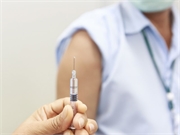Chief of U.S. Vaccine Initiative Says October Timeline 'Extremely Unlikely'
By Robin Foster and E.J. MundellHealthDay Reporters

FRIDAY, Sept. 4, 2020 (Healthday News) -- The chief adviser for the White House vaccine program said Thursday it was "extremely unlikely, but not impossible" that a vaccine could be available by the end of October.
Speaking with National Public Radio, Dr. Moncef Slaoui said that the U.S. Centers for Disease Control and Prevention's guidance to states to prepare for a vaccine as early as late October was "the right thing to do" in case a vaccine was ready by that time.
"It would be irresponsible not to be ready if that was the case," Slaoui said, adding that he first heard about the new CDC guidance from media reports, the Washington Post said.
Still, Slaoui, the chief scientific adviser for Operation Warp Speed, described getting a vaccine by late October as a "very, very low chance."
That message ran counter to optimistic claims from the White House that a vaccine could be ready for distribution before the November presidential election. During the National Republican Convention, President Trump announced that a vaccine could be ready "before the end of the year or maybe even sooner."
Slaoui did confirm that the two main vaccine candidates, referred to as Vaccine A and Vaccine B by the CDC, were being developed by Pfizer and Moderna, respectively. He said there was "no intent" to introduce a vaccine before clinical trials were completed. The trials would only be completed when an independent safety monitoring board affirmed the effectiveness of the vaccine, he added.
While expressing doubt about an October timeline, Slaoui believes "that we will have a vaccine available before the end of the year and it will be available in quantities that can immunize patients, subjects at the highest risk."
By the end of the year, there should be enough doses of the vaccine ready to immunize "probably between 20 and 25 million people."
There should be enough doses to immunize the U.S. population "by the middle of 2021," he added.
Antibody study suggests lasting COVID immunity
In a finding that should encourage scientists who are racing to develop coronavirus vaccines, a new study out of Iceland suggests that immunity to the disease may not be as fleeting as first thought.
Among 30,000 Icelandic residents who were tested for antibodies to COVID-19, researchers discovered the antibodies stayed in people's systems for at least four months, the study found.
Of those who tested positive for the coronavirus, 487 had received multiple antibody tests. In the first two months after a patient was diagnosed, the antibodies that can confer immunity rose significantly. For the next two months, antibody levels remained stable, according to the study published Tuesday in the New England Journal of Medicine.
In a commentary that accompanied the study, scientists from Harvard University and the U.S. National Institutes of Health noted that while the Icelandic research focused on a largely homogeneous population, "this study provides hope that host immunity to this unpredictable and highly contagious virus may not be fleeting and may be similar to that elicited by most other viral infections."
Earlier research on coronavirus antibodies had indicated that immunity might be short-lived, leaving people vulnerable to reinfection. But the Icelandic study offers hope that a vaccine that triggers a strong immune response will have a longer-lasting effect than some had believed.
The Icelandic researchers also found that women, nonsmokers and older patients had higher levels of antibodies, as did those who had suffered more severe infections, the newspaper said.
Cases keep mounting
By Friday, the U.S. coronavirus case count passed 6.1 million as the death toll passed 186,700, according to a New York Times tally.
According to the same tally, the top five states in coronavirus cases as of Friday were: California with over 727,000; Texas with more than 653,000; Florida with over 637,000; New York with nearly 442,000; and Georgia with over 261,000.
Curbing the spread of the coronavirus in the rest of the world remains challenging.
India has now surpassed Mexico in the number of deaths caused by the coronavirus. The nation of 1.3 billion people now has the world's third-highest death toll at more than 68,000, according to a Johns Hopkins tally. It is behind only Brazil and the United States. As of Friday, more than 3.9 million coronavirus cases have been reported in that country.
Brazil is also a hotspot in the coronavirus pandemic, with over 4 million confirmed infections by Friday, according to the Hopkins tally. It has the second-highest number of cases, behind only the United States.
Cases are also spiking in Russia: The country's coronavirus case count has passed 1 million, the Times reported. Cases continue to rise by about 5,000 per day, despite an official declaration in early August that the country had a vaccine.
As of Friday, the death toll in Russia was 17,598. When President Vladimir Putin announced the vaccine, health officials said mass vaccination would start in October. But the country's health ministry has pushed back that timeline to November or December, the Times reported.
Worldwide, the number of reported infections passed 26.3 million on Friday, with over 869,000 deaths, according to the Hopkins tally.
More information
The U.S. Centers for Disease Control and Prevention has more on the new coronavirus.

The news stories provided in Health News and our Health-E News Newsletter are a service of the nationally syndicated HealthDay® news and information company. Stories refer to national trends and breaking health news, and are not necessarily indicative of or always supported by our facility and providers. This information is provided for informational and educational purposes only, and is not intended to be a substitute for medical advice, diagnosis, or treatment.

